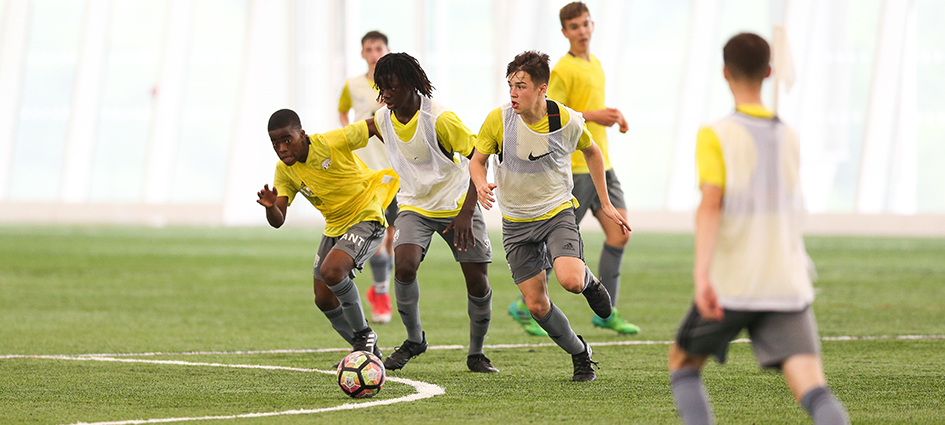Top tips

Top tips: coaching teenage players
- Peter Augustine
- 24 July 2019
Pre-season is a great opportunity to think about the players you coach and plan for the season ahead. If you work with teenage players, here are some top tips to consider for the new season from FA county coach developer, Peter Augustine.
1. Children not adults
Teenagers are not mini-adults and shouldn’t be treated as such. Young people in this age-range are still developing and their emotional responses are still being formed. It's crucial that coaches learn more about working with teenagers and tailor their approach to the age and ability of the players they are working with.
2. Physical and emotional instability
The teenage years can be a time of dramatic change for young people both physically and emotionally. Teenagers are often trying to make sense of themselves and their physical being, especially in relation to sport. As such empathy, understanding and support should be a priority.
3. Negative response to criticism
Very few players respond well to criticism - an issue that is particularly important for players in their teenage years. Criticism can lead to highly negative responses which can impact on their enjoyment of the game. Effective coaching communication skills and working with individuals is crucial in getting positive responses from players.
4. Safe space
It's important to provide support for teenagers during times of high stress as they may not have all the mechanisms to cope with their emotions. Be particularly sensitive when highlighting mistakes or at emotionally charged events like a cup final. Try and manage your own behaviour and set a good example for the young players in your care.
5. Effectively manage mistakes
Create your own coaching process to help players manage their mistakes. Consider what needs to be highlighted and what can be let go or discussed after. Always consider the impact you will have on both the player and the person.

6. Peer power
Young people are often tough on themselves and so are their peers. Some teenagers may seek acceptance from their peers before parents or coaches. Consider how you can use this to your advantage through team-work and group activities.
7. Risk-taking
Often teenagers will take more risks as they see the rewards are worth taking. Gaining favour with their peers, coach and/or parents are some of the strongest reasons for taking risks. Teenagers often feel taking a risk may raise their social standing and kudos within the groups they frequent.
8. Background information
The socio-economic groups that teenagers come from have a huge effect on how they see football. Teenagers from less fortunate backgrounds may see football as a way out of their social situation. As such, criticism from a coach may be seen as a way of holding them back from their dream. It’s important that coaches give constructive feedback in a way that challenges and allows young players to keep striving.
9. Technique over results
Results can be a negative trigger for teenagers so it's important to emphasise the learning process. For example, challenge players to develop their technical excellence rather than solely focusing on the outcome of a game. As they develop their technique and skill the results will follow.
Peter Augustine is an FA county coach developer.































